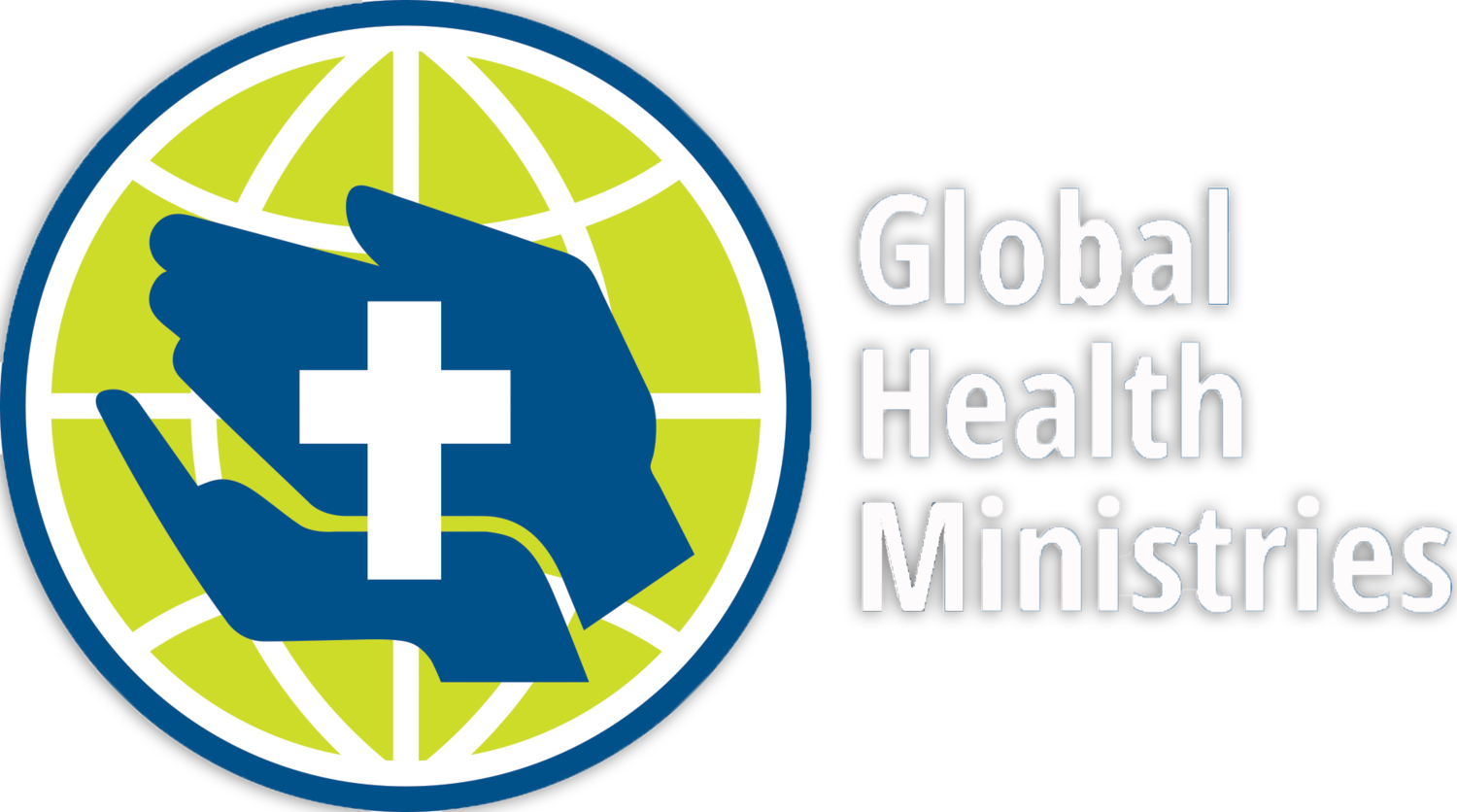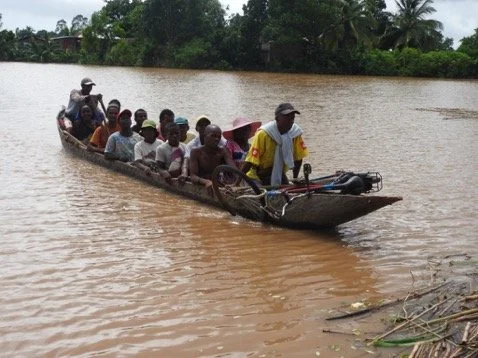Images from Ankaramalaza
To reach the community of Ankaramalaza, Madagascar, where one of Global Health Ministries’ partner clinics is located, you approach in a small dugout boat. That is how PPE, sent by Global Health Ministries early in the COVID-19 pandemic, arrived. The boat was met by community members who lifted the boxes onto their heads and carried them up the hill to the clinic, where the gloves, masks and other medical supplies could help protect and equip the health workers who care for this remote community and surrounding villages.
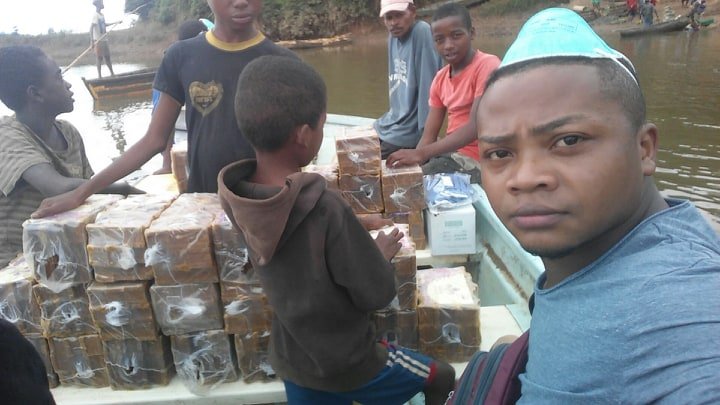


In 2021, the clinic provided 120 assisted deliveries, including four requiring surgical intervention, and more than 500 prenatal consultations. 20 women received life-renewing fistula repair surgery at Ankaramalaza. The surgical ward saw well over a hundred patients, providing exploratory surgeries to diagnose and treat patients, treating trauma victims and others who needed this level of care. There are two tuberculosis wards at Ankaramalaza. The clinic reported almost 2,500 consultations in 2021. They were proud of recent renovations in the pharmacy and reception area of the clinic.
Those renovations have likely been undone. Located in the southeast of Madagascar, Ankaramalaza has been hit hard by the two most recent cyclones to batter that country. The river that is the “road” you cross to get to Ankaramalaza has flooded. Fragile houses throughout the community have been damaged by strong winds, some also by flooding. Many have been totally destroyed. The clinic itself has sustained damage hindering its ability to deliver care.
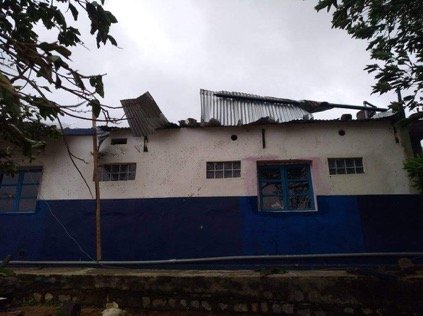
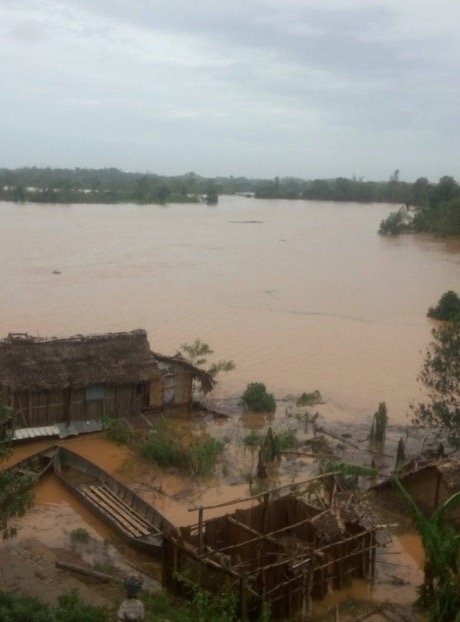
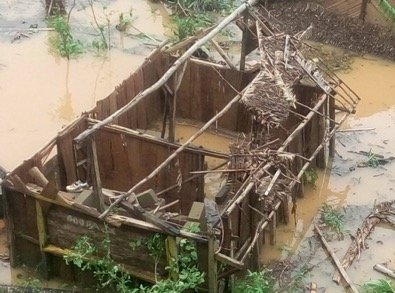
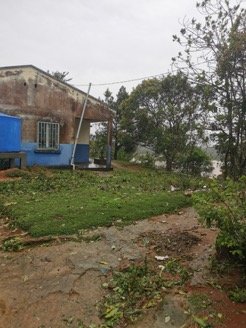
Four significant cyclones have struck Madagascar since January 28, with the last two striking further south, closer to Ankaramalaza. Cyclone Batsirai made landfall February 5, Cyclone Emnati just three weeks later. Batsirai’s winds ripped part of the roof off the Ankaramalaza clinic; staff reported over the weekend that Emnati took the roof off on the other side of the clinic building. Batsirai destroyed the maternity ward’s kitchen and also the roof of the maternity ward and one of the tuberculosis wards. 15 days later and without a roof, three maternity rooms were flooded by rainfall from Emnati, whose winds also destroyed the second tuberculosis ward. The clinic reports 30 roofs destroyed, windows, doors, beds in need of replacement, 8 flood-filled wells and 100 meters of broken electrical wires, including outside of the surgical ward.
Ankaramalaza is not the only SALFA facility impacted by these storms. Dr. Benjamin at Vangaindrano Hospital has reported that Batsirai affected a good number of the staff; many of their families sought shelter at the hospital and there is significant flooding around the community. Dr. Tsiresy at Manambaro Hospital reported roofs blown away, and Mr. Soja from the clinic at Antanimora du Sud shared that the worker's house was devastated.
Dr. Sahondra, CEO of the Lutheran health system in Madagascar (SALFA), has pointed out that these rural clinics and hospitals face many difficulties: COVID-19, insecurities, malaria, and the poverty of surrounding communities that keeps people from seeking medical care at a health facility. These successive cyclones have created additional burdens. Cyclones are not unusual in Madagascar, but it is rare for multiple, successive cyclones to strike the same areas within a month, and with such intensity. Climate change is fueling that intensity, and even though the communities surrounding these remote clinics and hospitals have contributed little to climate change, they are paying the price.
